Abstract
It is possible that communication from mass media, public health or consumer advertising sources about human genetics and health may reify stereotypes of racialized social groups, perhaps cueing or exacerbating discriminatory and racist attitudes. This research used a multifaceted approach to assess lay perceptions of genetic discrimination and genetically based racism (N = 644). Two tools for use in strategic planning efforts associated with communicating about human genetics and health, the genetic discrimination instrument (GDI) and the genetically based racism instrument (GBRI), were derived. The GDI emerged as having five dimensions associated with lay perceptions of genetic discrimination. The GBRI was found to be unidimensional. Scale validation activities supported the tools' concurrent and discriminant validity characteristics. Significant differences between blacks and whites on the criminal control rights, social reproductive rights and employer rights factors as well as the GBRI were found. We recommend application of these screening tools prior to national dissemination of messages associated with genes and disease susceptibility, including school and university-based curricula.
Full text
PDF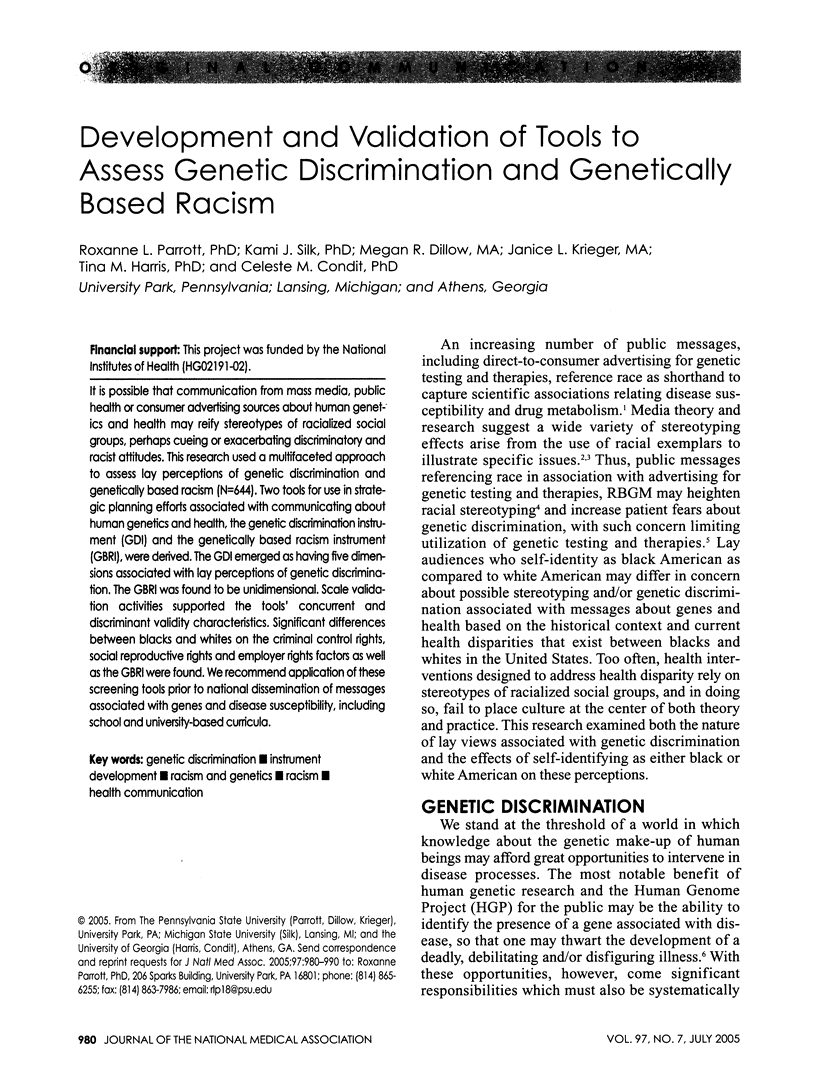
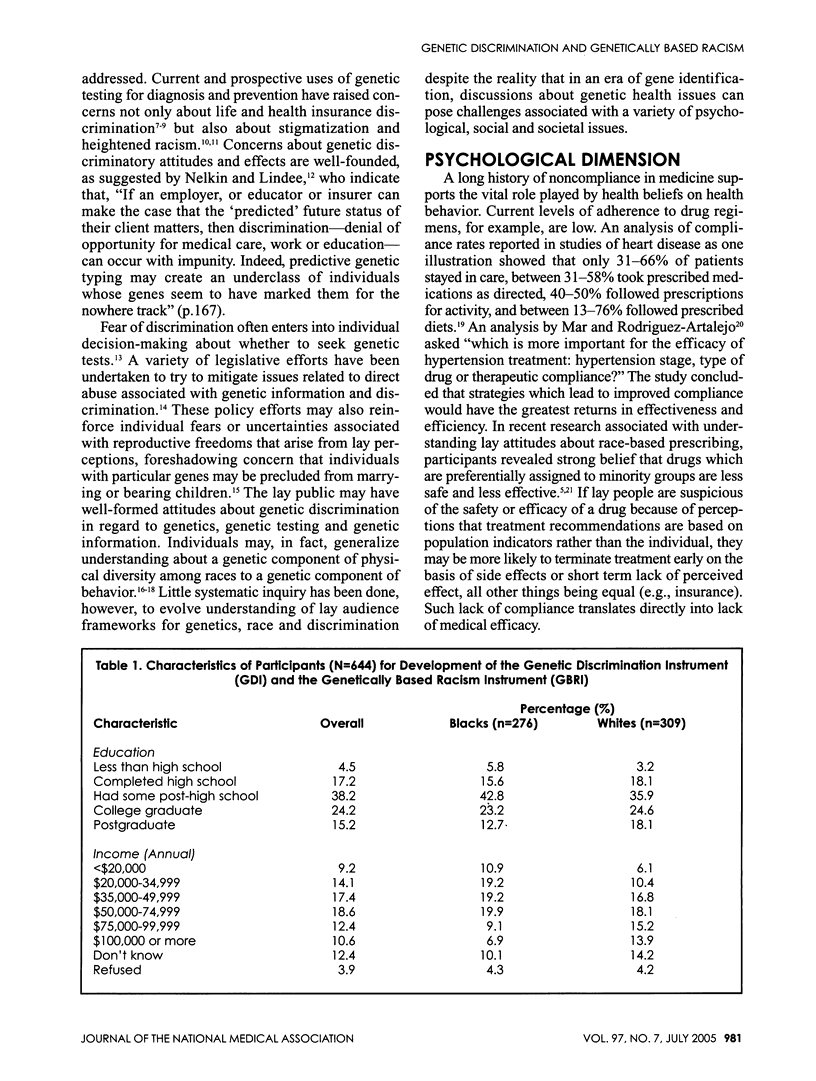
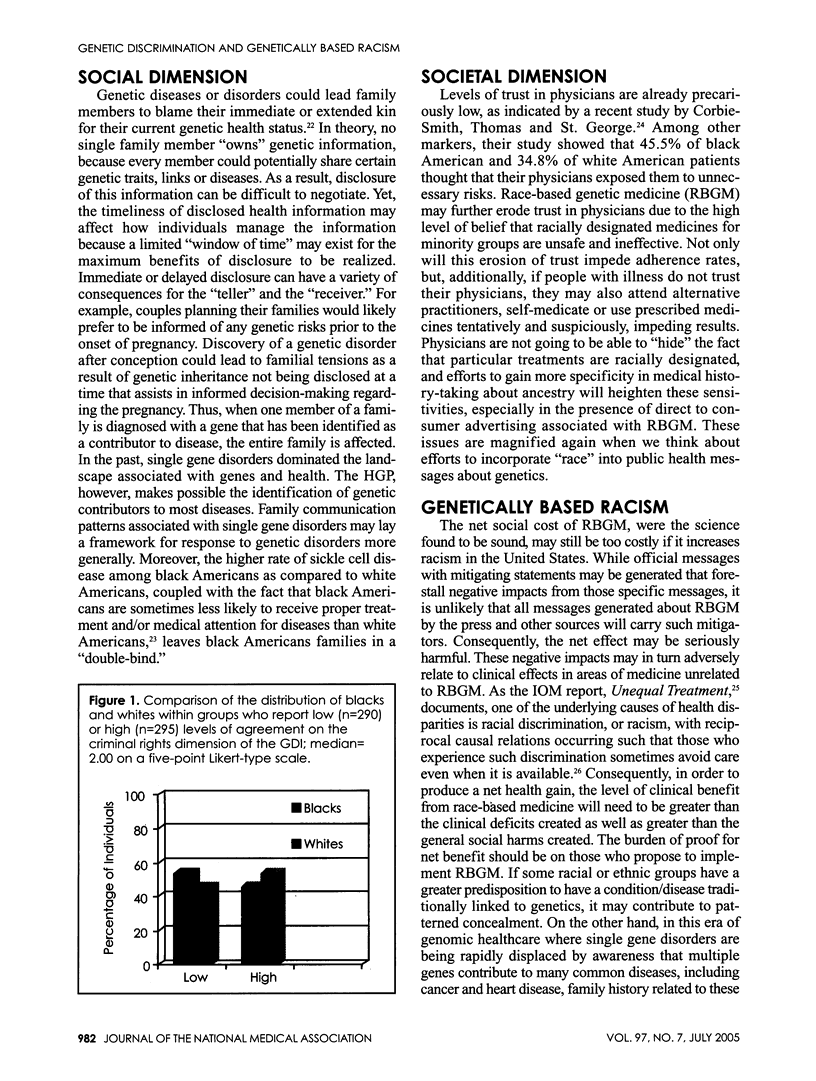
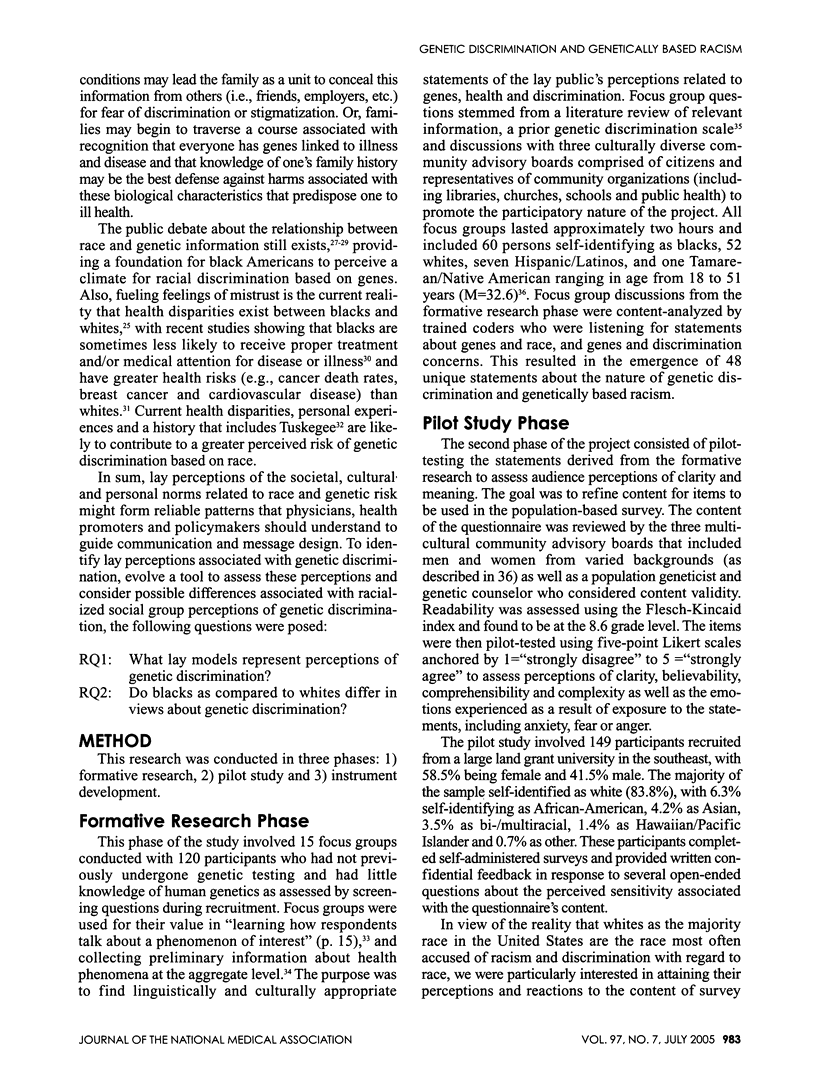
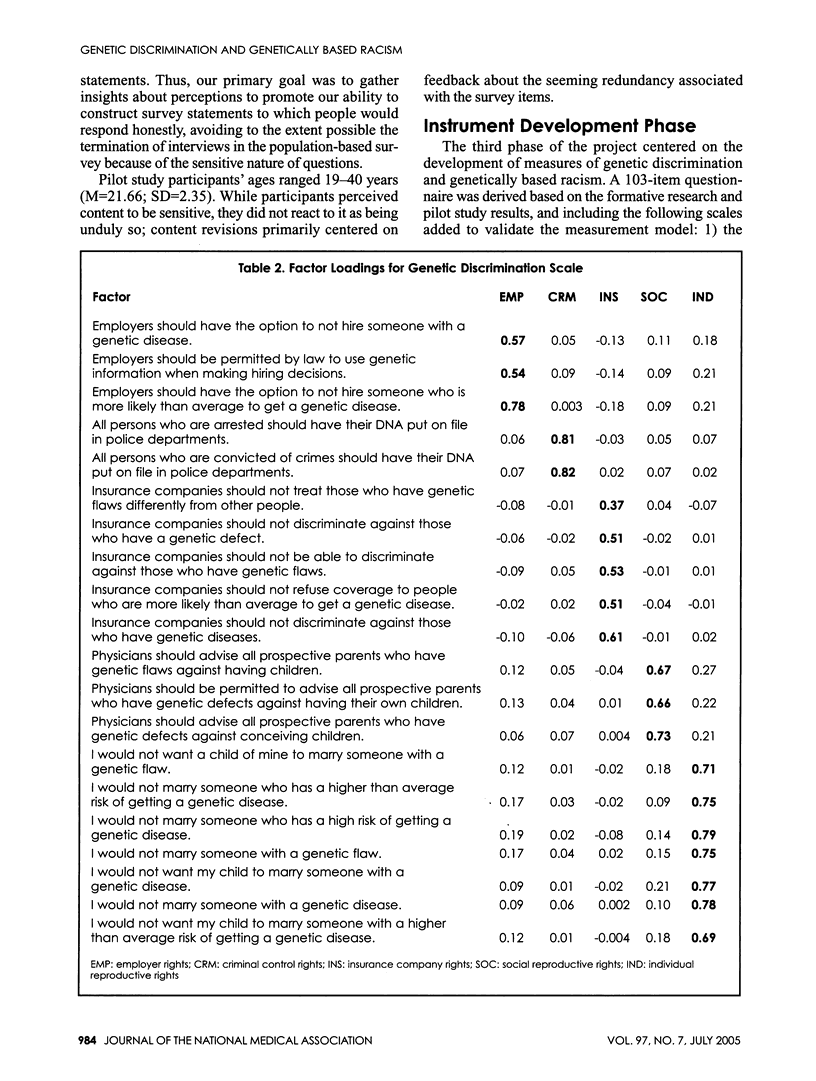
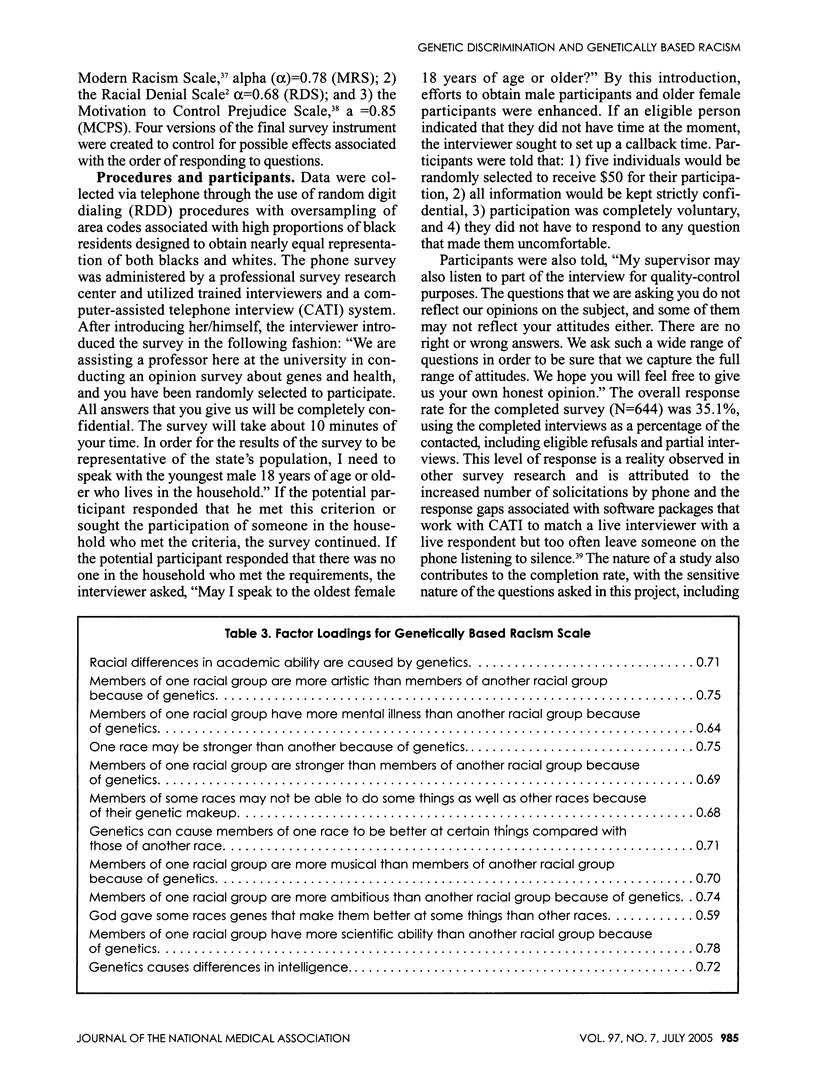
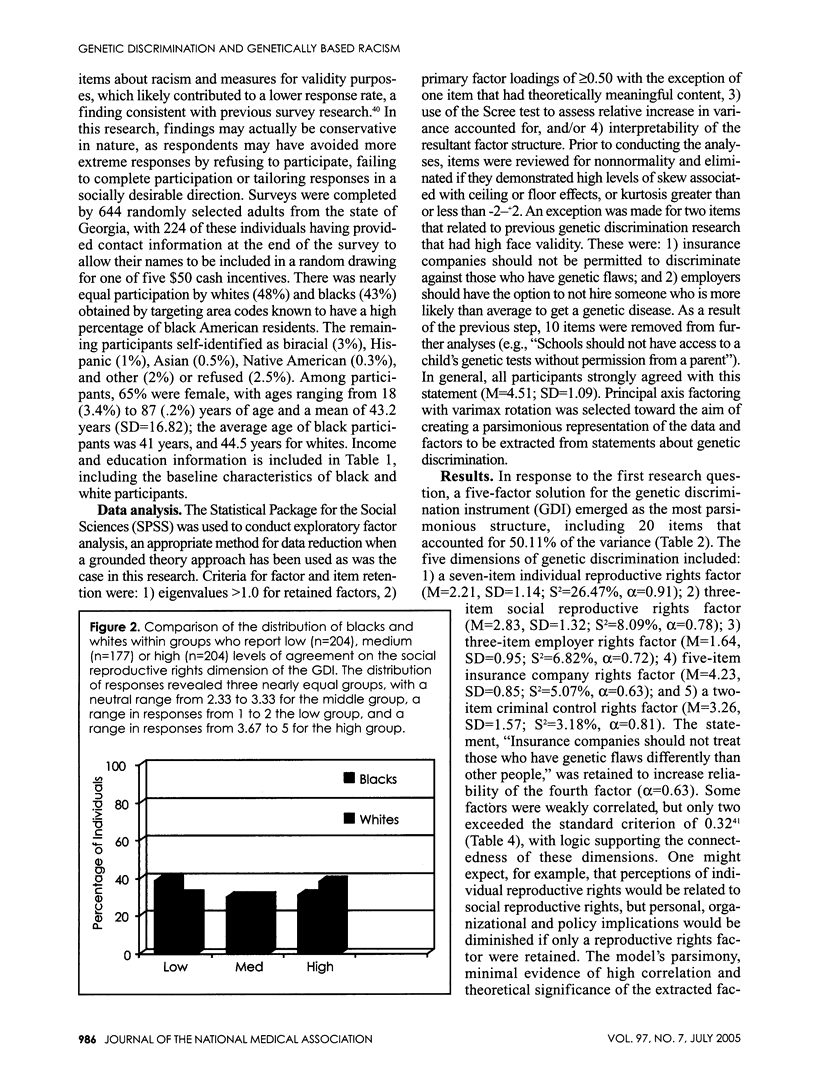
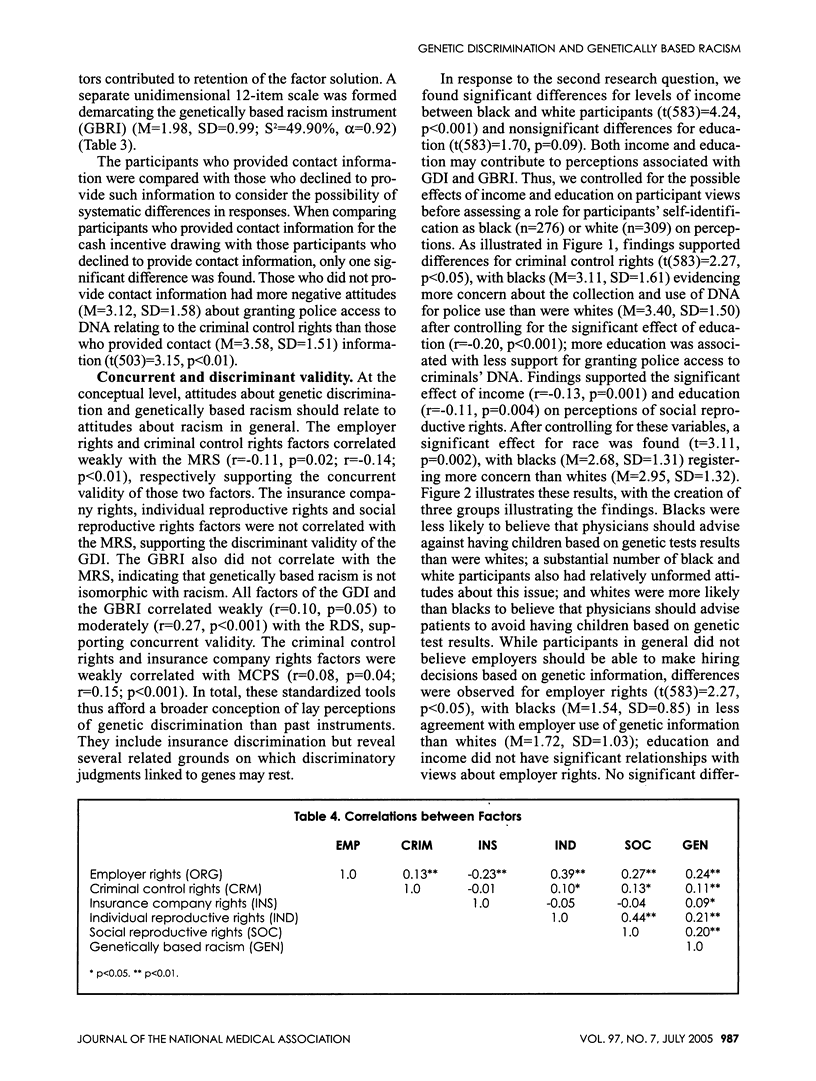
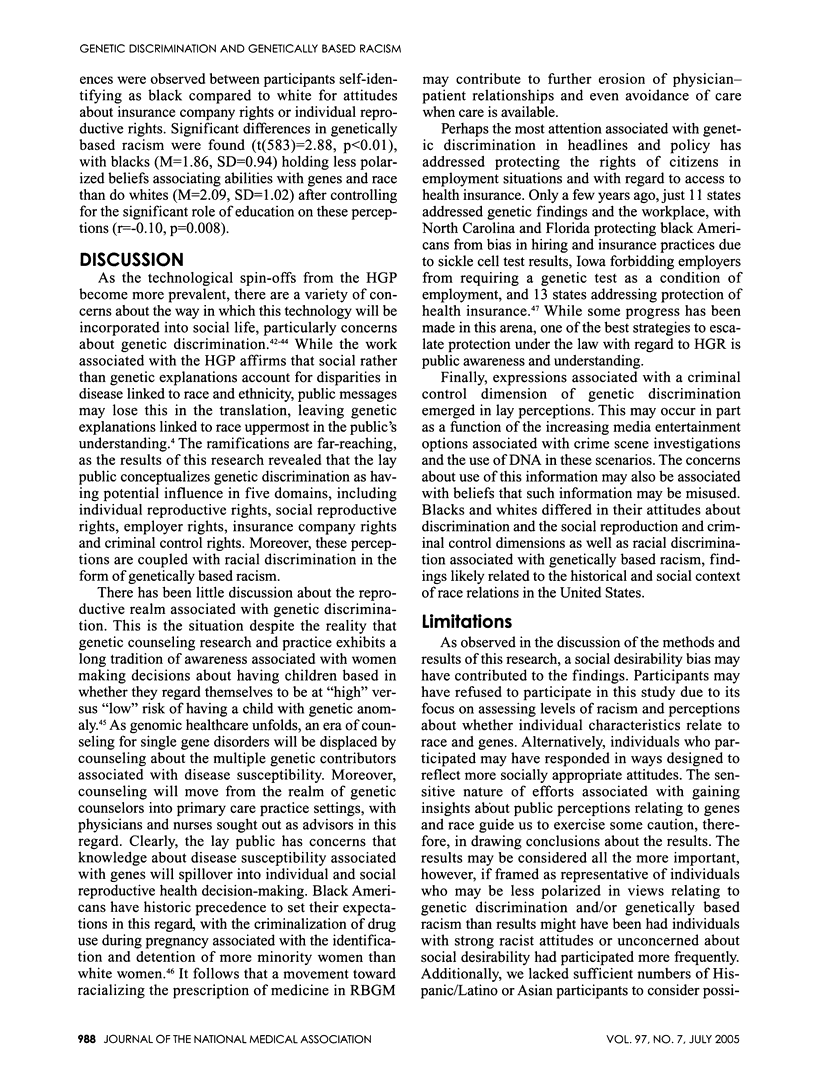
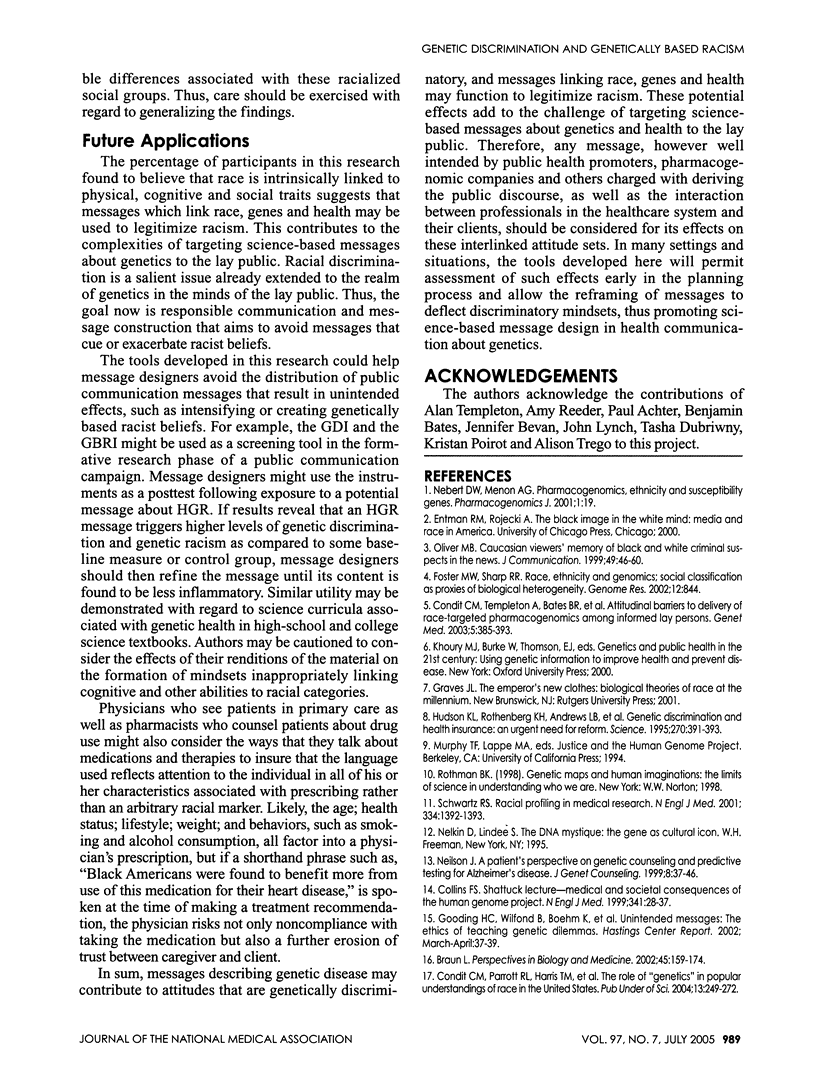
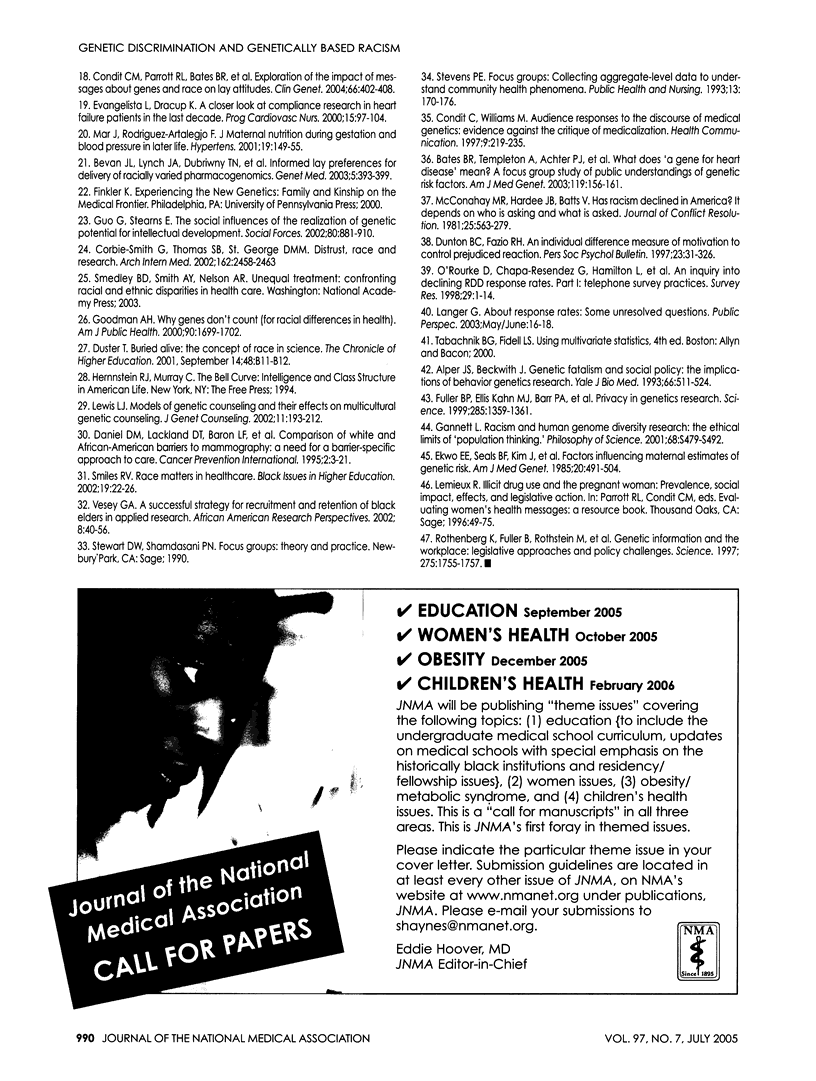
Selected References
These references are in PubMed. This may not be the complete list of references from this article.
- Alper J. S., Beckwith J. Genetic fatalism and social policy: the implications of behavior genetics research. Yale J Biol Med. 1993 Nov-Dec;66(6):511–524. [PMC free article] [PubMed] [Google Scholar]
- Bates Benjamin R., Templeton Alan, Achter Paul J., Harris Tina M., Condit Celeste M. What does "a gene for heart disease" mean? A focus group study of public understandings of genetic risk factors. Am J Med Genet A. 2003 Jun 1;119A(2):156–161. doi: 10.1002/ajmg.a.20113. [DOI] [PubMed] [Google Scholar]
- Bevan Jennifer L., Lynch Jonh A., Dubriwny Tasha N., Harris Tina M., Achter Paul J., Reeder Amy L., Condit Celeste M. Informed lay preferences for delivery of racially varied pharmacogenomics. Genet Med. 2003 Sep-Oct;5(5):393–399. doi: 10.1097/01.gim.0000087989.12317.3f. [DOI] [PubMed] [Google Scholar]
- Collins F. S. Shattuck lecture--medical and societal consequences of the Human Genome Project. N Engl J Med. 1999 Jul 1;341(1):28–37. doi: 10.1056/NEJM199907013410106. [DOI] [PubMed] [Google Scholar]
- Condit C. M., Parrott R. L., Bates B. R., Bevan J., Achter P. J. Exploration of the impact of messages about genes and race on lay attitudes. Clin Genet. 2004 Nov;66(5):402–408. doi: 10.1111/j.1399-0004.2004.00327.x. [DOI] [PubMed] [Google Scholar]
- Condit Celeste M., Parrott Roxanne L., Harris Tina M., Lynch John, Dubriwny Tasha. The role of "genetics" in popular understandings of race in the United States. Public Underst Sci. 2004 Jul;13(3):249–272. doi: 10.1177/0963662504045573. [DOI] [PubMed] [Google Scholar]
- Condit Celeste, Templeton Alan, Bates Benjamin R., Bevan Jennifer L., Harris Tina M. Attitudinal barriers to delivery of race-targeted pharmacogenomics among informed lay persons. Genet Med. 2003 Sep-Oct;5(5):385–392. doi: 10.1097/01.gim.0000087990.30961.72. [DOI] [PubMed] [Google Scholar]
- Corbie-Smith Giselle, Thomas Stephen B., St George Diane Marie M. Distrust, race, and research. Arch Intern Med. 2002 Nov 25;162(21):2458–2463. doi: 10.1001/archinte.162.21.2458. [DOI] [PubMed] [Google Scholar]
- Ekwo E. E., Seals B. F., Kim J. O., Williamson R. A., Hanson J. W. Factors influencing maternal estimates of genetic risk. Am J Med Genet. 1985 Mar;20(3):491–504. doi: 10.1002/ajmg.1320200310. [DOI] [PubMed] [Google Scholar]
- Evangelista L. S., Dracup K. A closer look at compliance research in heart failure patients in the last decade. Prog Cardiovasc Nurs. 2000 Summer;15(3):97–103. doi: 10.1111/j.1751-7117.2000.tb00212.x. [DOI] [PubMed] [Google Scholar]
- Foster Morris W., Sharp Richard R. Race, ethnicity, and genomics: social classifications as proxies of biological heterogeneity. Genome Res. 2002 Jun;12(6):844–850. doi: 10.1101/gr.99202. [DOI] [PubMed] [Google Scholar]
- Fuller B. P., Kahn M. J., Barr P. A., Biesecker L., Crowley E., Garber J., Mansoura M. K., Murphy P., Murray J., Phillips J. Privacy in genetics research. Science. 1999 Aug 27;285(5432):1359–1361. doi: 10.1126/science.285.5432.1359. [DOI] [PubMed] [Google Scholar]
- Gannett L. Racism and human genome diversity research: the ethical limits of "population thinking". Philos Sci. 2001 Summer;63(3):S479–S492. doi: 10.1086/392930. [DOI] [PubMed] [Google Scholar]
- Gooding Holly C., Wilfond Benjamin, Boehm Karina, Biesecker Barbara Bowles. Unintended messages: the ethics of teaching genetic dilemmas. Hastings Cent Rep. 2002 Mar-Apr;32(2):37–39. [PubMed] [Google Scholar]
- Goodman A. H. Why genes don't count (for racial differences in health). Am J Public Health. 2000 Nov;90(11):1699–1702. doi: 10.2105/ajph.90.11.1699. [DOI] [PMC free article] [PubMed] [Google Scholar]
- Hudson K. L., Rothenberg K. H., Andrews L. B., Kahn M. J., Collins F. S. Genetic discrimination and health insurance: an urgent need for reform. Science. 1995 Oct 20;270(5235):391–393. doi: 10.1126/science.270.5235.391. [DOI] [PubMed] [Google Scholar]
- Lewis Linwood J. Models of genetic counseling and their effects on multicultural genetic counseling. J Genet Couns. 2002 Jun;11(3):193–212. doi: 10.1023/a:1015279123108. [DOI] [PubMed] [Google Scholar]
- Neilson Jane. A patient's perspective on genetic counseling and predictive testing for Alzheimer's disease. J Genet Couns. 1999 Feb;8(1):37–46. doi: 10.1023/a:1022882503673. [DOI] [PubMed] [Google Scholar]
- Schwartz R. S. Racial profiling in medical research. N Engl J Med. 2001 May 3;344(18):1392–1393. doi: 10.1056/NEJM200105033441810. [DOI] [PubMed] [Google Scholar]
- Stevens P. E. Focus groups: collecting aggregate-level data to understand community health phenomena. Public Health Nurs. 1996 Jun;13(3):170–176. doi: 10.1111/j.1525-1446.1996.tb00237.x. [DOI] [PubMed] [Google Scholar]


